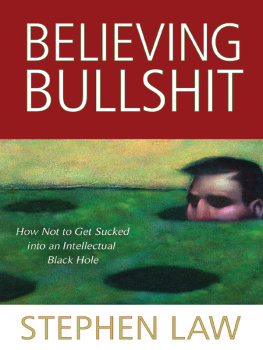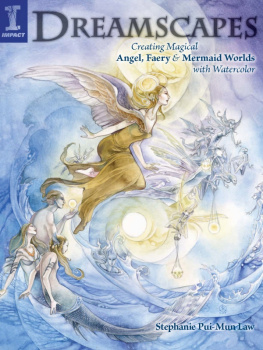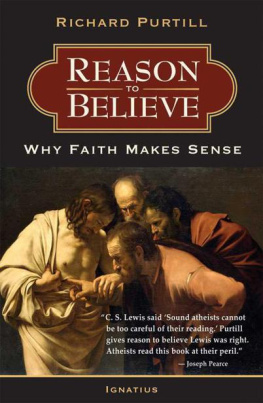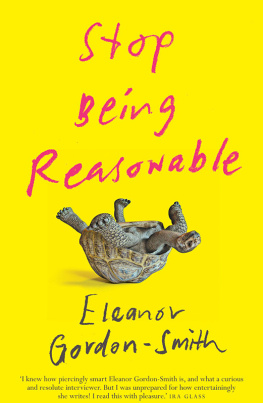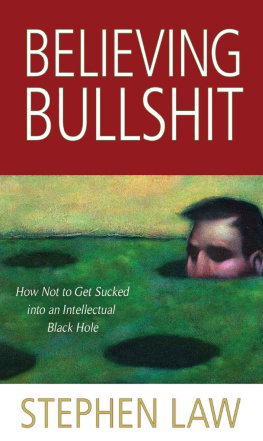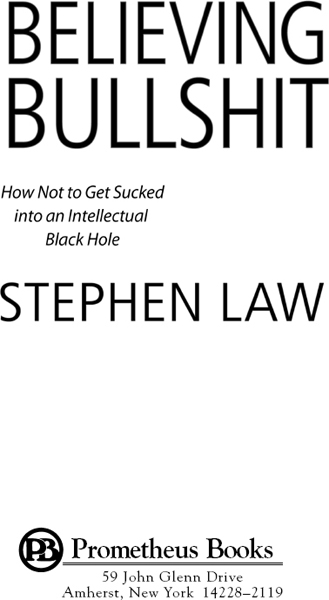FURTHER PRAISE FOR BELIEVING BULLSHIT
How many times have you found yourself taking part in frustrating arguments in which you are confident that the available evidence strongly supports your position, and yet your opponents somehow keep on managing to come up with superficially plausible but spurious reasons why they should not accept that evidence? Stephen Law has done us all the great favor of presenting a systematic analysis that will allow you to spot such slippery tactics and to counter them with good old-fashioned reason and common sense. What is more, he has done so in a very readable (and often amusing) way. Nice one, Stephen!
Chris French
Professor and head of the
Anomalistic Psychology Research Unit, Goldsmiths,
University of London, and editor of Skeptic magazine
If you want to escape being sucked into black holes of absurdity, this timely and necessary book offers eight great strategies to keep you safe.
A. C. Grayling
Professor of philosophy,
Birkbeck College, University of London
One mightn't end up agreeing with all of Law's examples of how we fall short of the ideal of appropriately guarding ourselves against false belief, but his general account of the manners in which we do fall short convinces and it cannot but help one in raising one's guard.
T. J. Mawson
Fellow and tutor in philosophy,
St. Peter's College, University of Oxford
Published 2011 by Prometheus Books
Believing Bullshit: How Not to Get Sucked into an Intellectual Black Hole. Copyright 2011 Stephen Law. All rights reserved. No part of this publication may be reproduced, stored in a retrieval system, or transmitted in any form or by any means, digital, electronic, mechanical, photocopying, recording, or otherwise, or conveyed via the Internet or a Web site without prior written permission of the publisher, except in the case of brief quotations embodied in critical articles and reviews.
Cover image 2011 Media Bakery.
Cover design by Jacqueline Nasso-Cooke.
Inquiries should be addressed to
Prometheus Books
59 John Glenn Drive
Amherst, New York 142282119
VOICE: 7166910133
FAX: 7166910137
WWW.PROMETHEUSBOOKS.COM
15 14 13 12 11 5 4 3 2 1
Library of Congress Cataloging-in-Publication Data
Law, Stephen.
Believing bullshit : how not to get sucked into an intellectual black hole / by Stephen Law.
p. cm.
Includes bibliographical references and index.
ISBN 9781616144111
ISBN 9781616144128 (e-book)
1. Fallacies (Logic) I. Title.
BC175.L39 2011
165dc22
2010049343
Printed in the United States of America

M y thanks to Luke Tracey, Jim Hamlyn, Jon and Adele Wainwright, Tom Pilling, Taryn Storey, Bill Law, Tim Mawson, Jon Cohen, John Sandford O'Neill, and Mick O'Neill. My thanks also to those who commented on earlier drafts posted on my blog stephenlaw.org.

INTELLECTUAL BLACK HOLES
E ven among the world's most educated and scientifically literate populations, ridiculous belief systems abound. Huge numbers believe in such things as astrology, the amazing powers of TV psychics, crystal divination, the healing powers of magnets, and the prophecies of Nostradamus. Many suppose the pyramids were built by aliens, or that the Holocaust never happened, or that the World Trade Center was brought down by the US government. A few would have us believe that the earth is ruled by a secret cabal of lizardlike aliens. Even mainstream religions have people believing absurdities. Preachers have promised seventy-two heavenly virgins to suicide bombers. Others insist the entire universe is only a few thousand years old.
How do intelligent, college-educated people end up the willing slaves of claptrap? How, in particular, do the true believers manage to convince themselves and others that they are the rational, reasonable ones and everyone else is deluded?
This book identifies eight key mechanisms that can transform a set of ideas into a psychological fly trapa bubble of belief that, while seductively easy to enter, can then be almost impossible to think your way out of again.
Cosmologists talk about black holes, objects so gravitationally powerful that nothing, not even light, can break away from them. Unwary space travelers passing too close to a black hole will find themselves sucked in. An increasingly powerful motor is required to resist its pull, until eventually one passes the event horizon and escape becomes impossible.
My suggestion is that our contemporary cultural landscape contains, if you like, numerous Intellectual Black Holesbelief systems constructed in such a way that unwary passersby can find themselves similarly drawn in. While those of us lacking robust intellectual and other psychological defenses are most easily trapped, we're all potentially vulnerable. If you find yourself encountering a belief system in which one or more of these mechanisms features prominently, be wary. Alarm bells should be going off and warning lights flashing. For you may now be approaching the event horizon of an Intellectual Black Hole.
FAKE REASONABLENESS
Note that the mere fact that a set of beliefs is attractive doesn't make it an Intellectual Black Hole. Take a set of beliefs about water, such as that it freezes at 0 degrees centigrade and boils at 100. People are also powerfully wedded to these beliefs too, but that's because they are genuinely reasonable. The seductive draw of the beliefs that lie at the heart of an Intellectual Black Hole, by contrast, has nothing to do with whether they're reasonable or true. To those trapped inside, the core beliefs may appear quite sensible. But that appearance is illusorya product of the belief system's ability to disable the truth-detecting power of reason and get its victims to embrace instead habits of thought that are deceptive and unreliable.
AIM OF THIS BOOK
The central aim of this book is to help immunize readers against the wiles of conspiracy theorists, cultists, political zealots, religious nutcases, and promoters of flaky alternative medicines by setting out some key tricks of the trade by which such self-sealing bubbles of belief are maintained. We'll see how an impregnable fortress can be constructed around even a ridiculous set of beliefs, rendering them immune to rational criticism and creating a veneer of faux reasonableness.
Most of us will have had at some point the frustrating experience of trying to hold a reasonable conversation with someone powerfully committed to some ludicrous system of belief, and so will have come up against at least some of the strategies documented in this book. My aim here is to unpack and explain in some detail eight key strategies, which I call:
- Playing the Mystery Card
- But It Fits! and The Blunderbuss
- Going Nuclear
- Moving the Semantic Goalposts
- I Just Know!
- Pseudoprofundity
- Piling Up the Anecdotes
- Pressing Your Buttons
In each case I (1) set out the strategy, (2) explain what is wrong with it, and (3) provide illustrations of how it is applied.

